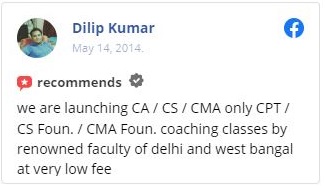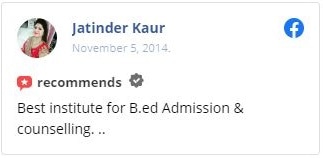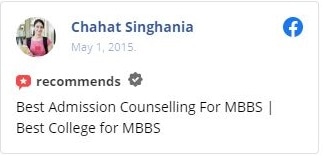LLB (Bachelor of Laws) Admission from Top Universities: Admission Process, Eligibility Criteria, Syllabus, Fees, Duration, Scope, and Career Opportunities
LLB (Bachelor of Laws) Admission: Overview
The admission process for a Bachelor of Laws (LLB) program typically involves several key steps and requirements.
1. Eligibility Criteria
- Educational Qualification: Candidates should have completed their 10+2 education for a 5-year integrated LLB program or hold a bachelor’s degree in any field for a 3-year LLB program.
- Minimum Marks: Most institutions require a minimum aggregate score of 45-50% in the qualifying examination (varies by institution).
2. Entrance Exams
- Many law colleges and universities require candidates to take entrance exams such as:
- CLAT (Common Law Admission Test): For admission to national law universities.
- LSAT (Law School Admission Test): accepted by several law schools.
- State-Level Entrance Exams: Some states conduct their own exams for law admissions.
- Admission may also be based on performance in individual university entrance tests.
3. Application Process
- Online Application: Candidates need to fill out application forms for the law colleges/universities of their choice, often done online.
- Application Fee: Payment of a specified fee is usually required.
- Documentation: Essential documents typically include:
- Mark sheets of previous degrees.
- Entrance exam scorecard (if applicable)
- Identity proof
- Passport-sized photographs
4. Merit List and Counseling
- After entrance exams, universities publish merit lists based on exam scores and academic performance.
- Candidates will participate in a counseling process where they can select their preferred college and course.
5. Admission Confirmation
- Once allotted a seat, candidates must confirm their admission by paying the required fee and submitting additional documents.
6. Course Duration
- LLB programs typically last for 3 years (for graduates) or 5 years (for integrated programs).
LLB (Bachelor of Laws) Admission: Eligibility Criteria
The eligibility criteria for admission to an LLB (Bachelor of Laws) program can vary based on the type of program (3- or 5-year) and the institution. Here’s a breakdown of the common eligibility requirements:
1. For 5-Year Integrated LLB Program
- Educational Qualification: Candidates must have completed their 10+2 (or equivalent) from a recognized board.
- Minimum Marks: Typically, a minimum aggregate score of 45-50% is required (varies by institution). Reserved category candidates may have a lower percentage requirement.
2. For 3-Year LLB Program
- Educational Qualification: Candidates should hold a bachelor’s degree in any discipline (e.g., BA, B.Com., B.Sc.) from a recognized university.
- Minimum Marks: A minimum aggregate score of 45-50% in the bachelor’s degree is generally required, with relaxations for reserved categories.
3. Age Limit
- There may be an upper age limit for some universities, often around 20–22 years for the 5-year program and 30 years for the 3-year program (varies by institution).
4. Entrance Exam Requirements
- Candidates must qualify for relevant entrance exams such as:
- CLAT (Common Law Admission Test)
- LSAT (Law School Admission Test)
- State-Level Entrance Exams
- Admission may also be based on performance in the institution’s own entrance test.
5. Additional Requirements
- Some institutions may require personal interviews or group discussions as part of the selection process.
- Candidates should also ensure they have the necessary documentation, such as identity proof and academic certificates.
Conclusion
Prospective students should check the specific eligibility criteria of the law colleges or universities they are interested in, as these can vary significantly. Meeting these criteria is essential for securing admission to an LLB program.
LLB (Bachelor of Laws) Admission Process
The admission process for an LLB program typically involves several important steps.
1. Eligibility Verification
- Ensure that you meet the eligibility criteria based on your educational qualifications and minimum marks.
2. Entrance Exams
- Registration: Register for relevant entrance exams such as CLAT, LSAT, or state-level exams.
- Preparation: Prepare thoroughly for the exams, as scores will play a crucial role in the admission process.
- Exam Dates: Keep track of exam dates and important deadlines for application submissions.
3. Application Process
- Online Application: Fill out the application forms for the law colleges/universities of your choice, typically available on their official websites.
- Application Fee: Pay the required application fee during the submission process.
- Documentation: Gather and submit necessary documents, which may include:
- Mark sheets from previous education
- Entrance exam scorecard
- Identity proof (like Aadhaar or passport)
- Passport-sized photographs
4. Merit List Publication
- After the entrance exams, universities will publish merit lists based on candidates’ scores and overall academic performance.
5. Counseling Process
- Candidates whose names appear on the merit list will be called for counseling sessions.
- During counseling, candidates can select their preferred college and specialization based on their rank and available seats.
6. Admission Confirmation
Once a seat is allocated, candidates must confirm their admission by:
- Paying the admission fee
- Submitting any additional required documents (e.g., medical certificates, character certificates).
7. Course Commencement
- After completing all admission formalities, candidates can join the program when classes commence.
Conclusion
The LLB admission process is competitive and requires careful planning and preparation. Staying informed about entrance exam schedules, application deadlines, and specific requirements for each institution is crucial for a successful admission experience.
LLB (Bachelor of Laws) Scope and Career Opportunities
An LLB (Bachelor of Laws) degree opens a multitude of career paths and opportunities in the legal field and beyond. Here’s an overview of the scope and potential career options for LLB graduates:
LLB (Bachelor of Laws) Scope
Diverse Fields:
- Law graduates can work in various sectors, including criminal law, civil law, corporate law, intellectual property law, and international law.
- Law graduates can work in various sectors, including criminal law, civil law, corporate law, intellectual property law, and international law.
Growing Demand:
- With increasing legal complexities in business and society, the demand for legal professionals continues to rise.
- With increasing legal complexities in business and society, the demand for legal professionals continues to rise.
Specialization Options:
- LLB graduates can pursue further specialization in areas like family law, environmental law, human rights law, and tax law, enhancing their career prospects.
- LLB graduates can pursue further specialization in areas like family law, environmental law, human rights law, and tax law, enhancing their career prospects.
Higher Studies:
- Graduates can opt for advanced studies such as LLM (Master of Laws), which can lead to academic or research careers.
- Graduates can opt for advanced studies such as LLM (Master of Laws), which can lead to academic or research careers.
LLB (Bachelor of Law) Career Opportunities
Legal Practice:
- Advocate/Lawyer: Represent clients in court and provide legal advice.
- Public Prosecutor: Work for the state in criminal cases.
Corporate Sector:
- Corporate Lawyer: Advise businesses on legal matters, contracts, and compliance.
- Legal Consultant: Provide expert legal advice to organizations.
Judiciary:
- Judicial Services: Take competitive exams to become a judge or magistrate in the courts.
- Judicial Services: Take competitive exams to become a judge or magistrate in the courts.
Government Services:
- Positions in government departments, legal advisors, and administrative roles.
- Positions in government departments, legal advisors, and administrative roles.
Academia and Research:
- Opportunities as lecturers or researchers in law schools and universities.
- Opportunities as lecturers or researchers in law schools and universities.
Non-Governmental Organizations (NGOs):
- Work in human rights, environmental, or social justice organizations.
- Work in human rights, environmental, or social justice organizations.
Mediation and Arbitration:
- Work as mediators or arbitrators to resolve disputes outside of court.
- Work as mediators or arbitrators to resolve disputes outside of court.
Legal Publishing and Journalism:
- Writing for legal journals, blogs, or working in media outlets focusing on legal issues.
LLB (Bachelor of Laws) Fees and Duration
LLB (Bachelor of laws) Duration
3-Year LLB Program:
- This program is typically pursued by graduates who already hold a bachelor’s degree in any field. It consists of 6 semesters over a span of 3 years.
- This program is typically pursued by graduates who already hold a bachelor’s degree in any field. It consists of 6 semesters over a span of 3 years.
5-Year Integrated LLB Program:
- This program is designed for students who complete their 10+2 education. It combines undergraduate studies with law education, consisting of 10 semesters over 5 years.
- This program is designed for students who complete their 10+2 education. It combines undergraduate studies with law education, consisting of 10 semesters over 5 years.
LLB (Bachelor of Laws) Fees
Fee Structure: The fees for LLB programs can vary significantly based on the institution, location, and whether it is a government or private college.
- Government Law Colleges:
- Fees typically range from ₹20,000 to ₹60,000 per year.
- Private Law Colleges:
- Fees can range from ₹1,00,000 to ₹3,00,000 per year or more, depending on the reputation and facilities of the institution.
- Fees can range from ₹1,00,000 to ₹3,00,000 per year or more, depending on the reputation and facilities of the institution.
- Government Law Colleges:
Additional Costs:
- Application Fees: A one-time fee when applying to colleges.
- Study Materials: Costs for books and resources.
- Examination Fees: Charged per semester for taking exams.
- Miscellaneous Fees: This may include library fees, lab fees (if applicable), and other administrative costs.
Conclusion
The duration and fees for LLB programs are generally straightforward, but they can vary based on various factors. Prospective students should research specific institutions to understand the detailed fee structure and any additional costs involved.
What's Next ?
After LLB or BA-LLB, a candidate can apply for Higher Education in the domain by pursuing LLM (Masters Programme in LAW)






























